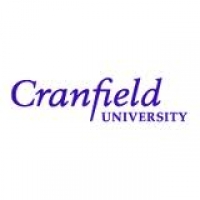






The course consists of twelve core modules, including a group design project, plus an individual research project. Computer Aided Engineering (CAE) covers the use of computers in all activities from the design to the manufacture of a product. It is at the forefront of information technology and of crucial importance to economies around the world. It is a vital part of many global industries including those of automotive, aerospace, oil, defence, finance and health. Computer Aided Engineering systems provide virtual product development environments allowing 3D models to be created, analysed, optimised and stored efficiently; operational and extreme physical conditions can be evaluated, reducing (and sometimes eliminating) the need for prototypes. The MSc in Computational and Software Techniques in Engineering has been developed to reflect the wide application of CAE and to deliver qualified engineers of the highest standard into industries operating in the fields of computational and software engineering. The course is suitable for candidates from a broad range of engineering and applied mathematical backgrounds, including aeronautic, automotive, mechanical and electrical engineering, in addition to those with a mathematical and computational sciences training, who wish to both develop and complement their existing skill-set in these important areas.
| Number | Duration |
|---|---|
| 1 | year |
The Computer Aided Engineering option of the MSc I Computational and Software Techniques in Engineering is designed to equip you with the skills required to pursue a successful career working both in the UK and overseas. This course attracts enquiries from companies in rapidly expanding engineering IT industry sector across the EU and beyond who wish to recruit high quality graduates. There is considerable demand for students with expertise in engineering software development and for those who have strong technical programming skills in industry standard languages and tools. Typically our graduates are employed by software houses and consultancies, or by CAD/CAM and other engineering companies in software development roles and industrial research. A selection of companies that have recruited our graduates include: * Design Manager, Hindustan Aeronautics Ltd * Financial Software Developer, Bloomberg * Research Engineer, Moodstocks SAS * PLM Consultant, PCO Innovation * Software Developer, CAE Engineering * Computer Science Engineer, Sopra Group * IT Archietecture Consultant, Solucom * Asset Management Engineering, EON UK * Mathematical Software Engineer, Arithmetica Ltd * Analyst, Morgan Stanley.